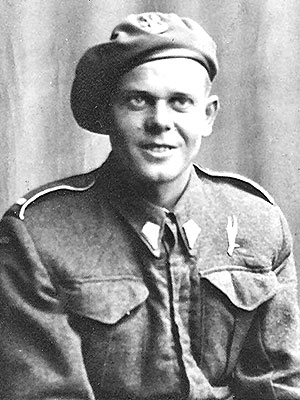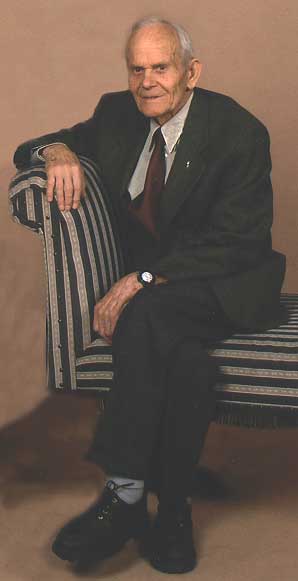Name: Slawomir Kwiatkowski
Rank: Lance Corporal (Starszy Strzelec Podchorazy)
Unit: 3rd Batallion, 9th Company
Regiment: 1st Polish Independent Parachute Brigade Group

I was in the 3rd Bn. 9th Company and jumped out off plane No. 68
carrying 19 paras on September 21. After the jump we were dispersed
all over the dropping zone at Driel.
We assembled at the River Rijn and spent all night there under the
fire of German machine-guns and mortars. The ferry by which British
Airborne expected us to cross the river was sunk and there wasn't a
trace of any boat.
In the early morning we withdrew to the village Driel to prepare the defense against expected Germans attack. My friend Bartek and I dug an anti tank slit for two of us in a sector pointed out, not very far from the church. During the day our section were on reconnaissance patrol and at dark we went again to the Rijn trying to cross the river, as British called us to come and strengthen their defense. Only a part of 7th Company did it with help of small rubber dinghies brought from the dropping zone. All the rest returned early morning to our positions at Driel. All time we were shelled and mortared by Germans from the Westerbouwing heights.
Next night from 23th to 24th Sept. Canadian boats arrived. They came very late, with no paddlers, and each boat able to take less people than it was announced before. That caused a mess and disorder. At dawn the crossing was stopped because losses were too heavy. Only about 200 men crossed the river that night. I was among them, Bartek and others returned again to Driel. From that moment we haven't seen each other till June next year.
 I was with group of Poles who took over from British the defense of 5 houses in Eastern
perimeter of Oosterbeek (me - Stationsweg 4). We stayed there till
night from 25th to 26th. At night British Airborne Division began to
withdraw for evacuation upon the riverbank. There was a distinct
shortage of motor boats available and the evacuation proceeded at a
very slow pace. It occurred on "no man land" area called after "the
killing ground" because it was all covered by German fire.
I was with group of Poles who took over from British the defense of 5 houses in Eastern
perimeter of Oosterbeek (me - Stationsweg 4). We stayed there till
night from 25th to 26th. At night British Airborne Division began to
withdraw for evacuation upon the riverbank. There was a distinct
shortage of motor boats available and the evacuation proceeded at a
very slow pace. It occurred on "no man land" area called after "the
killing ground" because it was all covered by German fire.
The Poles were the far rearguard and our group arrived to the river bank almost at the break of the day. We saw the row of soldiers waiting and eventually no more boats to cross. Then a white flag came out and with the rest of waiting men I became a prisoner. I was a poor swimmer. From more than 300 Poles fighting in Oosterbeek perimeter only 160 crossed back. Bartek returned to Driel and spent these 3 more days under heavy shelling and mortaring. Then the rest of Polish Brigade went by foot to Nijmegen. They guarded a bridge there (there is a photo of the bridge guard, Bartek among some others) and an airfield near the Mose River. They went back to England by ships from Ostende only on the 10th Oct. 1944.
I was back in Scotland in the middle of May 1945. I found myself in the same place where our course for Officer Cadets was held - the Earlsferry House 4, don't remember when I got again in touch with Bartek. Any way I visited him eventually in Edinborough. He was a medical student then and rented a room in the town. I think I set out for Poland in May 1946 from a small port near Edinborough - called Leith.
Voice interviews:
The river crossing and afterwards(MP3 559KB)
Operation Berlin, the withdrawal(MP3 593KB)


















